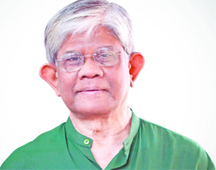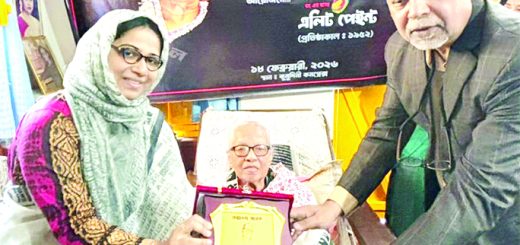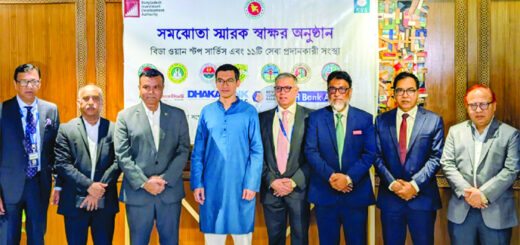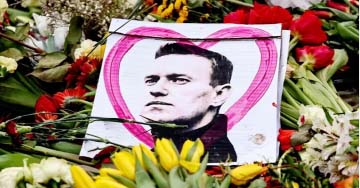Message for women in the poetry of Iqbal
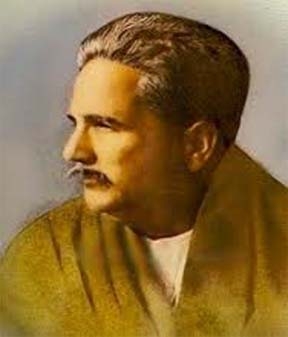
Humaira Shahbaz :
Colour in the portrait of universe is from woman,
From her warmth the inner warmth of life
In glory her dust is greater than Plaedias,
Each glory is the hidden pearl of her shell;
Dialogues of Plato she could not write,
Yet Plato’s spark by her flame was broken.” (Mohammad Iqbal)
Among the distinguished poets of East who have shed luster on the place of their birth and have left it richer in thoughts and culture, the name of Dr. Sir Muhammad Iqbal has an unrivalled place. Iqbal, born in November 9, 1877, was a poet, philosopher and politician, whose poetry in Urdu and Persian is among the greatest of the modern era. He died in the peak of his glory and fame in early hours of 21 April 1938 in Lahore and was buried in the precincts of Badshahi mosque. He is best known for his poetic works. This noble and renowned poet of this subcontinent clearly forwards the sorrow and sufferings of human being in his poetry irrespective of cast and creed. On the one side the heritage and greatness of Islam embodied and personalised in his poems and on the other hand he devoted himself to emancipate the nation from the imperialistic design and clutches. Being a great poet he is not limited within the boundary of particular land or nation, rather his message is for the mankind. Especially he addressed the younger generation and suggested them the guideline to face and coup with the challenges of their time, as at his time Muslims of subcontinent were ruled by the British Raj. While addressing the nation he does not forget the equal and important component of society, that is women. In the following paragraphs we will know about a few aspects about women in Iqbal’s poetry. First we will know some women of great importance in his life who have definitely influenced and modified the thoughts and personality of this great poet.
Mother’s lap is the first institution of child. Imam Bibi, mother of Iqbal was a religious and pious woman. She was uneducated in the formal sense but she learnt and studied the Quran and some kinds of prayers. Once a local deputy Wazir purchased a new singer machine to Sheikh Nur Mohammad, the father of Allama Iqbal. Imam Bibi, his wife mistrusted the legitimacy of the income and believed that the larger part of it had been derived from un-Islamic i.e. illegal pursuits and thus refused to spend any part of her husband’s income on herself. Sheikh Nur Muhammad eventually left his job and started the embroidery of Muslim womanhoods. So Iqbal was brought up in the lap of such a pious mother. Iqbal’s mother died on November 9,1914. He composed a very long poem on her death, a poem of great philosophical significance for both Muslims and non Muslims. The following lines are a part of it expressing the feelings of Iqbal on the death of his mother:
“Who would wait for me anxiously in my native place?
Who would display restlessness if my letters fail to reach ?
I will visit thy grave with this complaint;
Who will now think of me in midnight prayers?
All thy life thy love served me with devotion,
When I become fit to serve thee, thou hast departed.”
Another important name in the life history of Iqbal is that of Attiya Faizee. While Iqbal was in Europe he met Miss Faizee, a brilliant Indian woman. She came from the cultured Faizee branch of the Faizee Tayabjee family. Iqbal was very much impressed by the personality of this educated woman. When Attiya Faizee again visited Europe in 1908, she met Iqbal and was there with him for some times. Iqbal wrote a few verses in the autograph album of her sister-in-law. He also sent some verses to Miss Faizee after she left Europe. The poems hurt with candor of earthy emotions of a man for a woman. Later when Miss Faizee accused Iqbal of ‘indifference’ and ‘hypocrisy’, Iqbal wrote in reply :
“If opportunity comes I shall certainly show you how intensely I have my friends and how deeply my heart feels for them all. People hold life dear and rightly so I have got the strength to give it freely away. No! Do not call me indifferent and hypocrite, not even by implication for it hurts my soul and makes me shudder at your ignorance of nature. I wish I could turn inside outward in order to give you better view of my soul which you think is darkened by hypocrisy and indifference”.
In the life of Iqbal, we come through names of three more women that is Karim Bibi, Sardar Begum and Mukhtar Begum-the wives of Iqbal. Ali Buksh, his life long faithful servant says that when these three women’ were living together with Iqbal, he never discriminated among them and that his behaviour towards them was based on the principle of justice and equality.
After knowing a few about the women in life of Iqbal now we will look forward for the women in poetry of Allama Iqbal, and the most important names are Fatima bint-e Muhammad (Sm) and Fatima binte-Abdullah. When we come to the Persian poetry, Allama Iqbal praises the dearest daughter of Holy Prophet, Fatima bint e-Muhammad in Ramuz-e-Bekhudi. Iqbal describes Hazrat Fatima as a role model for Muslim women. In Urdu poetry of Allama Iqbal we come through a poem titled ‘Fatimah binte Abdullah’. Fatima, daughter of Abdullah was an Arab girl who ‘Was martyred while serving water to the fighters against infidels in the battle of Tripoli, 1912. In this poem Allama Iqbal pays tribute to one of the martyrs in this war. He is not only paying his tribute but is showing the high status of a martyr in Islam. In this particular case an unknown girl was elevated to the elegant rank of a Shaheed by giving her life in the cause of Allah.
Translation :
Fatimah The honour of the blessed Ummah you are
All specks of your handful of dust innocent are
O nymph of wilderness this happiness in your destiny was
Serving water to fighters against infidels your destiny was
This holy war in God’s cause without armaments is!
How courage-inspiring this desire for martyrdom is!
Some activity in your silent grave is
A nation being reared in this lap is
New stars appearing in the celestial space are
Whose light waves strange to the human eye are
Who just arisen from the dark house of time are
Whose lights unaware of limitations of day and night are
In whose brightness the old as well as the new ways are
And also the shadows of stars of your destiny are
Now after knowing about the women in poetry and life of Iqbal, in following paragraphs characteristics of an ideal Muslim woman will be discussed as described by Allama Iqbal. Allama Iqbal’s poetry reflects the teachings of Islam, be it any aspect of his thoughts, he is influenced by the guidance from Islam. When it comes to guide the women, a major portion of society, he seeks light from the teachings of the holy Quran. Islam respects women on being herself. Woman is truly honoured. Islam is not only a religion; it is a complete way of life. Women are half of humanity. She is a mother, wife, daughter and sister.
When we go through the Urdu and Persian poetry of Allama Iqbal, the most important role of a woman as Iqbal observes is the character of ‘Woman as a Mother’. As Iqbal himself was brought up in the lap of a pious mother, he has put so much emphasis on the mothers of nation in his poetry. As a role model for the mothers of nations Iqbal bring the example of Hazrat Fatima-tuz-Zahra, the mother of Hazrat Imam Husain and Imam Hasan(RA).
In the above lines Iqbal praises Hazrat Fatima. He says Hazarat Mariam has only one reference for being dear to us and that is being the mother of Hazrat Isa (Jesus). But Hazrat Fatima is dear to us because of her three references as being the daughter of Holy Prophet Hazrat Muhammad (peace be upon him), being the wife of Hazarat Ali, and being the mother of icon of solidarity of Islam that is Hazrat Imam Husain. Iqbal believes that it was the influence of the personality and the teachings of a mother that her son elevated the name of Islam in war against evil. So Iqbal confirms that for the mothers of the nation the role model of Hazrat Fatima is best to be followed. At another place in Ramuz-e-Bekhudi he addresses the women of nation :
O! Woman your veil is a protection of respect, and-you are the source of our light, your pure nature is a blessing for us. you are the strength of religion and nation, as our child washes his lips from your milk and you are the one who first taught him that God is One and only, your love has transformed our actions, our thoughts, our speech and our personality.
A woman as a mother has so much responsibility on her shoulders and if she justifies her obligations then there is no reason for her not having the heavens under her feet. Allama Iqbal also quotes this famous Hadith that heaven is under the feet of mother.
In Armghan-e Hijaz Iqbal claims that fate of nation can be read from the forehead of its mothers.
When Iqbal points out woman as an equal and more important component of society, he lays so much emphasis on the education of woman. Woman equipped with both religious and modem education can definitely lead the younger generation to better individual and community life. Iqbal, according to the teachings of Quran, has encouraged providing equal opportunities of getting education as provided to man. For woman religious educations is even more important than worldly education .
“If Frankish culture blights the motherly urge,
for human race it means a funeral dirge.
The lore that makes a woman lose her rank
Is naught, but death in eyes of wise and frank.
If schools for girls no lore impart on creed,
Then lore and crafts for love are death indeed”.
Iqbal’s poetry gives us the message of morals and ethics. As education is the solution to all our ills education should be meaningful. Iqbal wanted to create a culture of education and civilsation in which we can learn values and ethics as well. Iqbal was a great poet with vision. He had predicted about a century ago the situation of his nation sandwiched between the teachings of Islam and western culture and education.
“The girls are learning English
The nation prosperity’s way has found
The ways of the West are in view
Eastern ways sinful are found
What scenes will this drama produce?
On curtain’s raising this will be found”.
West has attracted the eastern woman in the name of women’s right. Vested quarters in the name of women’s right are trying to make them available for them to fulfill their evil desires whenever they wish. They want woman to be a mistress without honour, religion or manner. The western world has gone through all this. Women of the West are the part of society that is facing injustice and dishonour. They discarded their desires and the result is a shameful and hated end. Iqbal conveys the massage of Islam to protect their honour granted by Islam. In Zarb-e-Kalim he addresses the women not to follow the western culture and warns that he can visualise the nation facing a great disaster just because of following the western culture. Iqbal blames man for detraction of woman as he considers man responsible for the distress of woman.
“A fact alive is in my breast concealed,
He can behold whose blood is not congealed.
To wear a veil and learn new lore or old
can’t guard fair sex except a person bold.
A nation which can’t see this truth divine,
Pale grows its son and soon begins decline”.
We can conclude from the poetry of Iqbal that the most important role of woman in her life is that of being a good mother. It’s not important for the elevation of soul and personality of woman herself but it is of great importance for any nation and when it comes to the Muslim nation a mother is a trainer of future generation. To reach this goal Iqbal wants the woman to be well equipped with religious as well as modem education. Over all the message of Allama Iqbal for women is the same as directed by Islam. Allah granted a high place for women, and they should share the responsibilities of upholding the truth and forbidding evil.

